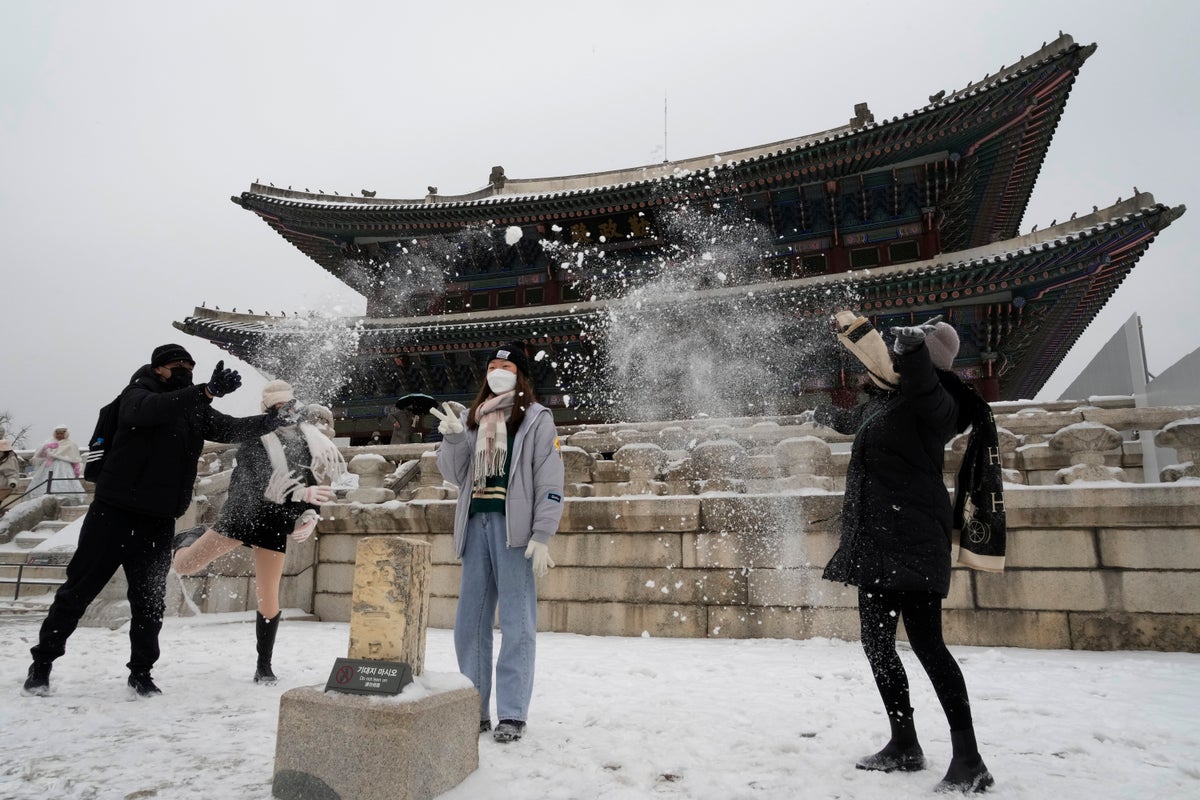
Cars slowed and stopped on icy roads and bundled-up commuters gingerly navigated snow-covered sidewalks as a snowstorm swept through the South Korean capital of Seoul and nearby regions on Thursday, extending a frigid cold spell that has the country in its grip.
There were no immediate reports of major disruptions or damage caused by the snow, ice and subzero temperatures as of Thursday afternoon, as officials lifted their heavy snow warnings for the area after the snowfall weakened following morning commuting hours.
Traffic on the country’s major roads was normal, although 110 hiking trails across three national parks remained closed.
More than 5 centimeters (2 inches) of snow fell in Seoul in the 24 hours through 11 a.m. Thursday, while neighboring Gyeonggi province and Incheon saw 6 to 8 centimeters (2.3 to 3 inches) of snow.
Morning temperatures in the region fell to around minus 10 degrees Celsius (14 degrees Fahrenheit). The country’s weather agency forecasted similar weather for Friday, prompting officials to warn that driving conditions could worsen after a hard freeze of snowy surfaces.
About 2,100 public workers and 1,100 vehicles were deployed to spray more than 3,100 tons of snow-clearing chemicals and salt on major roads and expressways from midnight to 4 a.m. Thursday to prevent them from being dangerously slick during the commuting hours, according to the Ministry of the Interior and Safety.
While the country has so far avoided major traffic accidents, around 540 homes, mostly in the greater Seoul area, reported that their water pressure-gauges or pipes froze over and burst.
Air traffic was mostly back to normal on Thursday, recovering from a major disruption caused by a snowstorm that hit the southern resort island of Jeju earlier this week and resulted in the cancelation of hundreds of flights on Tuesday and stranded tens of thousands of travelers who visited the island during the Lunar New Year holidays.
The country has increased the number of flights into and out of Jeju since Wednesday to transport the travelers who had been stuck there.







